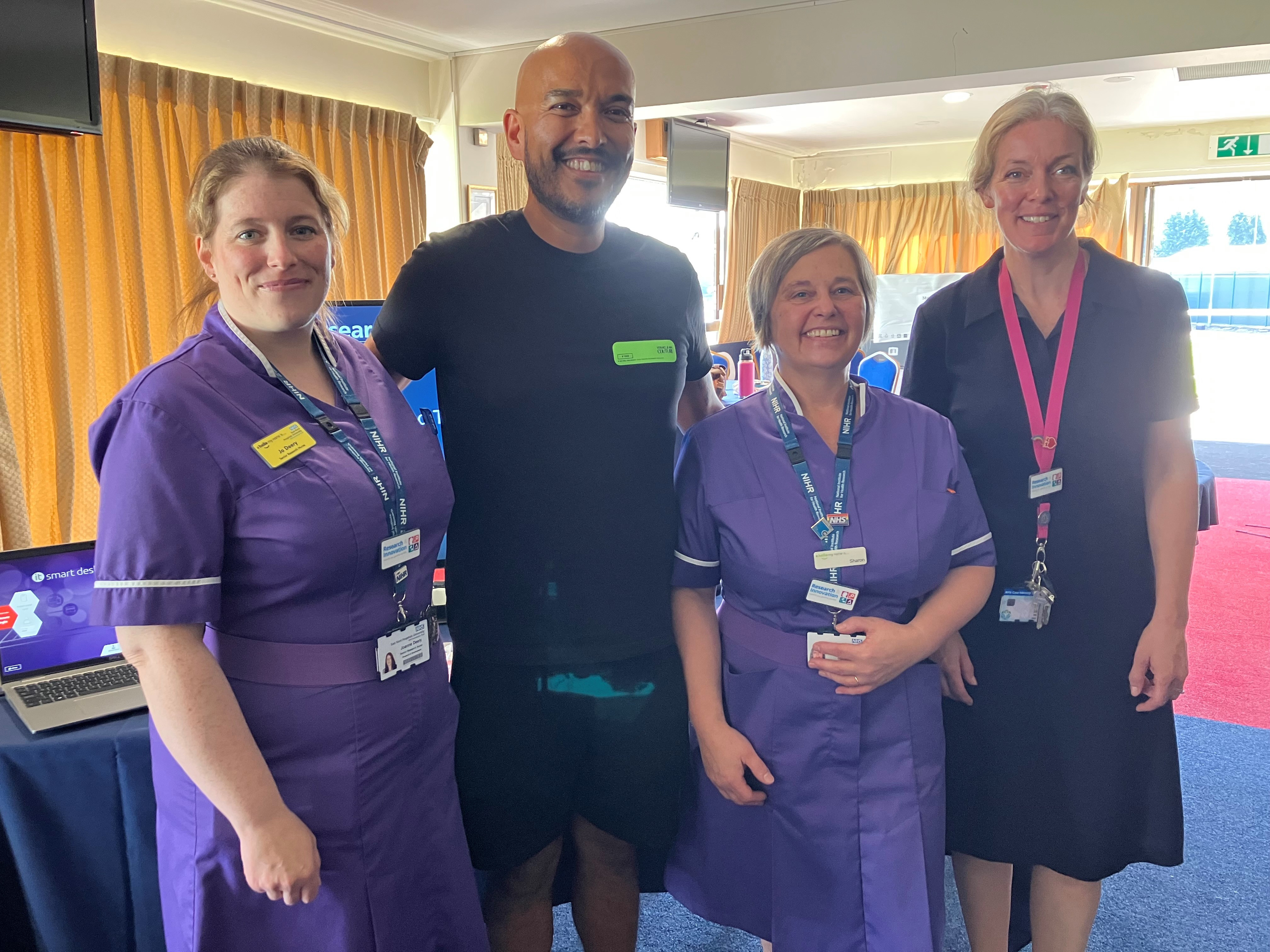
Changing lives through research
Stories of the life-changing impact of clinical research underway in our hospitals were shared by patients and staff at the Trust’s Research Showcase last week.
Ten innovative studies were presented, including how virtual reality technology has been found to reduce stress and anxiety in patients before surgery, and a study in development that will test whether the technology can reduce their pain after surgery.
Attendees also heard about a new treatment for myeloma, a type of blood cancer, which teaches the patient’s own immune system to fight the cancer.
Lavinia Davey, senior research nurse for haemato-oncology said: “It’s exciting that we’re able to offer this drug to our patients, who are very keen to be involved in research. As a Trust we have a good track record for recruiting patients onto studies, so pharmaceutical companies come to us to run studies like this.”
Haemophilia patient, Terry, spoke about how taking part in a gene therapy trial has effectively cured him of the blood-clotting disorder, which means that he no longer has regular injections and hospital visits.
Patients with Haemophilia B are missing the critical factor 9, which helps the blood to form clots to stop bleeding. They have to inject into their body three or more times a week.
Dr Gillian Evans, clinical lead for haemophilia said: "In this gene therapy trial we used a harmless virus to insert the gene for factor 9 into the patient's liver cells where it produces endogenous factor 9, so the patient no longer has to inject himself with factor 9."
“Since Terry has undergone the gene therapy treatment, he has not had any further therapy for his Haemophilia and his level has remained normal for three years now. We are very optimistic that this is potentially a cure for haemophilia.”
Attendees also heard about the Signet study, a national trial which involves giving a single dose of statin, a drug usually given to lower cholesterol, to potential organ donors, to see if this improves the post-op outcomes for patients receiving the organs.
George Purser, who benefited from taking part in a trial to help surgical wounds heal more quickly and prevent infection, said: "I'm proud to have been part of a clinical trial and it was amazing to be able to relay my personal experience of how the trial helped me in my time of need."
Jessica Evans, director of research and innovation said: “The energy in the room was palpable as patients and clinicians spoke about the life-changing impact of the research taking place in our hospitals. It was a wonderful opportunity to demonstrate that patients treated in research-active trusts have better health outcomes.”
David Stephenson, deputy director research and innovation, said: “We are proud that research is a crucial part of what happens here, as it helps to improve patient care, recruit and retain staff, drive efficiency and save money.”